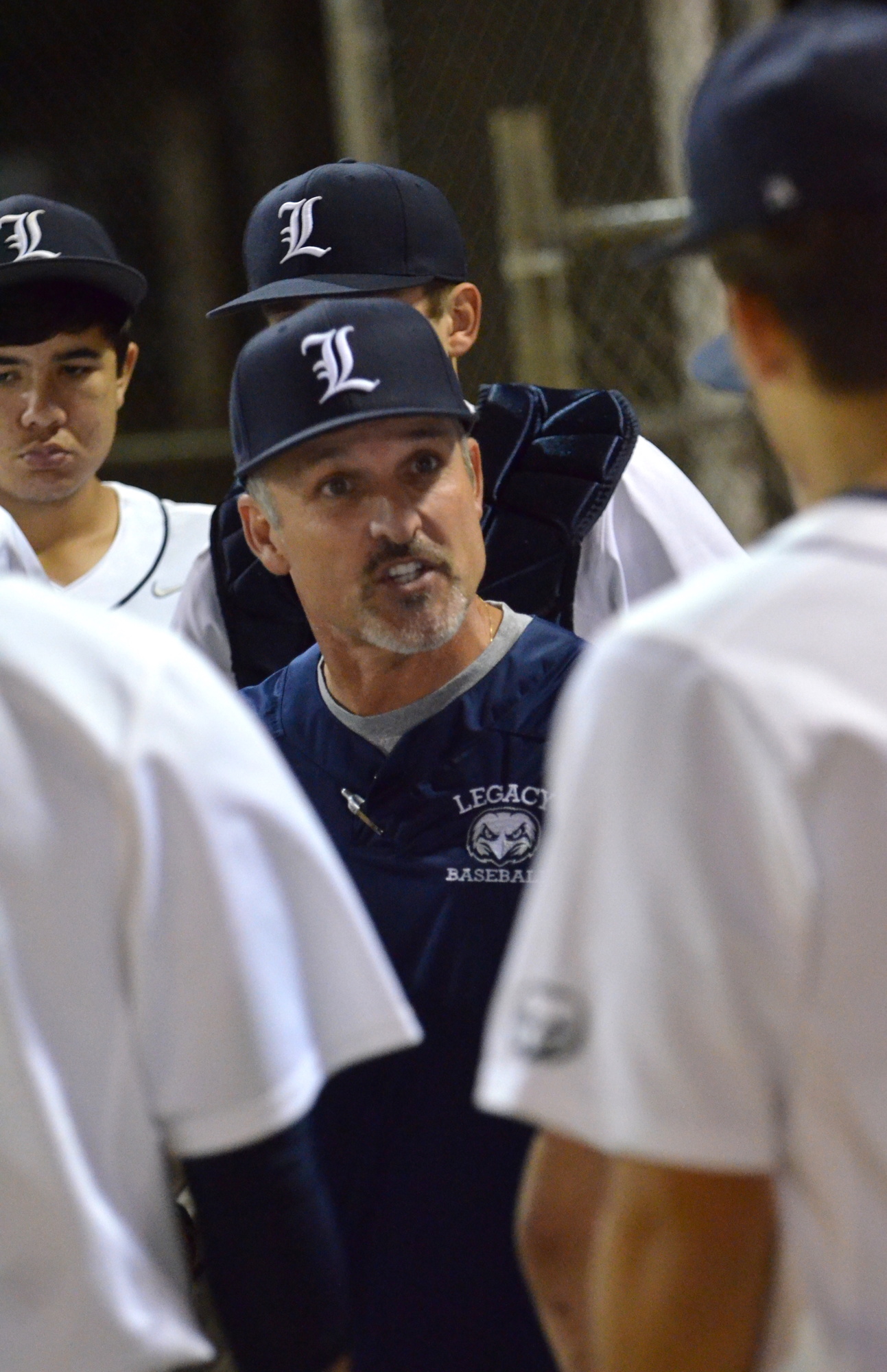- December 13, 2025
-
-
Loading

Loading

OCOEE When Jack Chambless was just 10 years old, he wrote a letter to the editor of Sports Illustrated.
At the time, Dwight Stones, an Olympic high-jumper, had come under fire for accepting what were then regarded as impermissible benefits. A young Chambless argued in his letter that Stones should be allowed to keep his money and should not be punished.

Chambless recalls viewing the addition of free agency to Major League Baseball as an “amazing” moment in the sport’s history.
He later wrote his master’s thesis at North Carolina State on salary discrimination against African-American and hispanic athletes in Major League Baseball.
For Chambless — an economics professor at Valencia College for more than two decades, a senior fellow at the James Madison Institute in Tallahassee and a policy adviser for the Heartland Institute in Chicago — economics and sports never have been as far apart as one might think.
And for the Legacy Charter baseball team, now in its second year under Chambless’ leadership as head coach, that means accountability and character reign supreme in the start-up program that is 4-2 so far this spring.
“He’s very high on character and accountability,” said Legacy Athletic Director Jarrett Wiggers, also an assistant coach for the Eagles. “He’s so excited about teaching these kids to be young men.”
Although Chambless always has harbored a free-market view of what athletes should be able to do, his interest in the academia of free markets and economics was a seed that was planted almost by chance.
A former sophomore baseball player at Paris Junior College in Texas, Chambless admits he wasn’t much of a student at first. Then, he had sustained an injury that sidelined him for several weeks. So one weekend, when most of his friends and teammates had gone home, he decided to do the assigned reading for one of his courses: “One Day in the Life of Ivan Denisovich.”
It changed his life.
“It was a transformative book in my academic life,” he said. “On that next Monday, I made an ‘A’ on the exam — many of my teammates thought that I must have cheated. At that moment, I really didn’t care about playing baseball anymore — I wanted to focus on academics. … The book made me start to understand the value of human liberty and the struggles people were going through.”
Chambless transferred to the University of Oklahoma to complete his undergraduate degree before moving on to N.C. State for his graduate work. A few months out of school, in the summer of 1991, he got his teaching position with Valencia, where he has been since, in addition to a few side ventures, including a few years spent as a sports agent.
Throughout the years, Chambless has written columns espousing his libertarian views for several newspapers and has been interviewed on television many times.
Despite the nature of his life’s work, practices for the Eagles, who are in their first season of district competition, are no economics debate. Chambless leaves his politics off the field but admitted some of the principles from those views are ingrained in the program.
“Character is first on the list, and accountability is part one-A,” Chambless said. “Mediocrity and laziness won’t be tolerated.”
For the Eagles, mediocrity does not so much apply to skill or ability so much as it applies to knowledge, execution and effort. Under Chambless, Legacy is a team eager to hang its hat on fundamentals, situational awareness and which isn’t afraid to play an old-school, small-ball style of play.
Like one might expect of a coach who is also an economist, Chambless coaches Legacy with a tremendous attention to detail. He credits his ability to do so on his three assistant coaches, who he says are all skilled teachers of the game. Chambless also said his mother, who grew up in post-war Germany, instilled in him the importance of being detail-oriented.
For a second-year team, Legacy (4-2) has had a strong start to the spring.
In their first district game, the Eagles defeated Cornerstone Charter 4-3 in extra innings.
Chambless is excited about his team’s youth and about being able to coach his two sons — Gehrig, a junior, and Gabriel, a sophomore.
The team has taken a liking to its coach and his unique coaching style, and senior Hilton Lamprecht even dual-enrolled at Valencia to take his coach’s class — quite possibly the hardest “A” he ever earned.
Chambless currently teaches six classes at Valencia — three in person and three online.
Thanks to cooperation from Valencia, Chambless said all of his in-person classes end at 12:45 p.m., giving him plenty of time to head over to the ballfield.
Although he is a busy man, he concedes his current teacher/coach arrangement isn’t a bad way to spend his days.
“I’m enjoying this more than I can possibly say, especially (because) two of my sons are on the team,” Chambless said. “I can’t think of a better place to be, any afternoon, than on a baseball field. It has been a perfect blend.”
Contact Steven Ryzewski at [email protected].